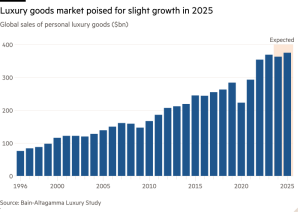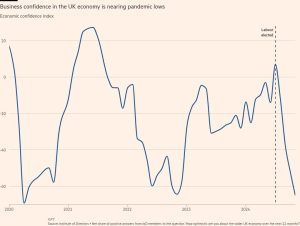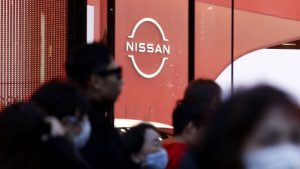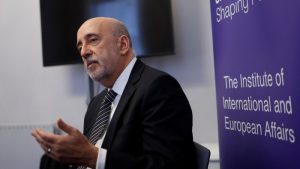Indonesia’s plan for wealth fund controlled by president stirs concern
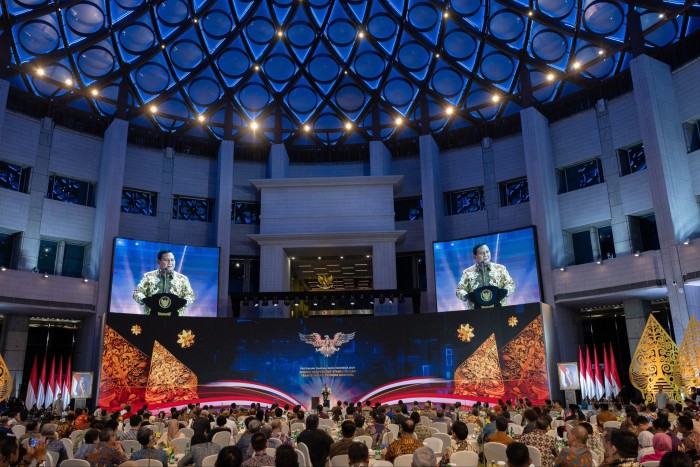
Indonesia is poised to launch a sovereign wealth fund in the next few weeks, but a plan to place it under the control of President Prabowo Subianto has sparked concern it could be undermined by political interference.
Prabowo’s planned “super-holding” investment company — billed as an answer to Singapore’s Temasek — is intended to take over managing government stakes in state-owned enterprises that have total assets of nearly $570bn across sectors from banking to energy and power generation.
However, unlike Temasek, Indonesia’s fund would aim to finance strategic government projects and deploy SOE profits to promote faster economic growth, while also seeking to improve returns on government assets, four people familiar with internal discussions on it told the Financial Times.
They said some government officials and private sector stakeholders involved in the talks had raised concerns that the fund was being given too many roles and could become a tool to meet Prabowo’s political rather than investment goals.
“There are merits to consolidating the state-owned companies, but [the implications for] governance, execution and political interference [are] worrying,” said one of the people involved.

Kevin O’Rourke, principal at Jakarta-based consultancy Reformasi Information Services, said foreign investors were concerned Prabowo was “asserting high-level, top-down political control and wedding that to political objectives” with the creation of the fund.
“Overall, it has some negative implications for the performance of the state sector, which is consequential because these entities are critical to the overall economy,” said O’Rourke. “It’s going to hurt overall credibility for other government initiatives in the eyes of the international investment community.”
Prabowo became president in October with ambitious promises to boost growth to 8 per cent from 5 per cent and to provide free lunches for school children, a programme expected to cost $28bn a year.
The people familiar with the talks said the government wanted the fund to act as a development bank and eventually to be able to borrow to finance government projects.
Prabowo has already created an investment agency called Daya Anagata Nusantara, or Danantara, which is expected to oversee the wealth fund. The launch of the fund itself, initially planned for early November, has been postponed, but the people familiar with the discussions said it was expected before the end of the year.
Danantara head Muliaman Hadad dismissed concerns about potential interference, saying the agency was based on a “strong foundation of governance, transparency and accountability”.
By reporting directly to the president, Danantara would eliminate “bureaucratic procedures and political interventions”, Muliaman said in a written statement to the Financial Times.
Danantara was established with the vision of “becoming a national investment catalyst that drives Indonesia’s economic transformation,” he said, adding that the new structure would improve SOEs’ efficiency and bolster competitiveness.

In a 2022 report, the Asian Development Bank said governance of Indonesian SOEs was “fragmented” and characterised by what it called “dual-ownership” by the finance ministry and the ministry of state-owned enterprise. This had “contributed to worsening of the trade-offs faced by SOEs in undertaking commercial and development policy roles”, the ADB said.
Several Indonesia SOEs have been investigated by local authorities for corruption in the past. Indonesia ranks 115 out of 180 countries in Transparency International’s corruption index.
A corruption scandal in neighbouring Malaysia involving a state fund has highlighted the need for effective scrutiny. The US justice department has alleged that around $4.5bn was misappropriated from the 1MDB fund in what it says is the largest-ever kleptocracy case.
The people familiar with discussions on Indonesia’s new fund said it would initially manage the government’s stakes in the seven largest SOEs — financial institutions Bank Mandiri, Bank Rakyat Indonesia and Bank Negara Indonesia; national energy company Pertamina, state power company Perusahaan Listrik Negara, state telco Telkom Indonesia and mining group Mind ID. Other well-performing SOEs might be added later, they said.
The seven companies’ assets are valued at nearly $570bn, equivalent to around 40 per cent of Indonesia’s annual GDP.
Four of the seven companies are publicly listed, with a combined market capitalisation of $107bn. Units of some of the other companies are also traded on the Indonesian stock exchange.
The new fund will leverage Indonesia’s resources “to spearhead national investments and economic growth”, according to a planning document seen by the FT. The government has said more than $800bn is needed over five years to meet the growth target of 8 per cent.
Through dividends and taxes, the SOEs already contribute to Indonesia’s state budget. Under the new structure, the dividends from the seven firms could be used in full or in part for reinvestment by the fund, the people familiar with discussions said.
The seven companies typically contribute about 90 per cent of total SOE dividends paid to the government. Total SOE dividends paid to Jakarta were worth Rp85.5tn ($5.38bn) in 2024.
“The idea now is to leverage those dividends and make more money out of it, instead of spending it immediately,” said one official.
Muliaman said that, by consolidating and leveraging its strategic national assets, Indonesia aimed to attract “both domestic and foreign investment”.
“Danantara will prioritise investments in critical sectors such as food security, renewable energy, downstream industries, and other strategic projects,” he said in the statement.
The loss of dividend income from the SOEs would add to strain on the government budget. Economists have already warned that fiscal room is limited, given Prabowo’s spending plans.
A top presidential adviser has said the government plans to borrow more to fund projects, which rating agencies say could hurt Indonesia’s credit rating. Debt taken on by the fund could reduce the need for the government borrowing.
It is unclear how the new fund will work alongside an existing sovereign wealth fund called the Indonesia Investment Authority or INA, which was launched by Prabowo’s predecessor Joko Widodo and has assets under management of around $10.5bn.
INA has made some investments jointly with companies from countries including Japan, China and the UK. An initial plan to fold INA into the new fund was shelved after concerns were raised by several of its global partners about the new organisational structure, two of the people familiar with the discussions said.
INA could be gradually brought into the entity later, they said. INA declined to comment.
#Indonesias #plan #wealth #fund #controlled #president #stirs #concern

